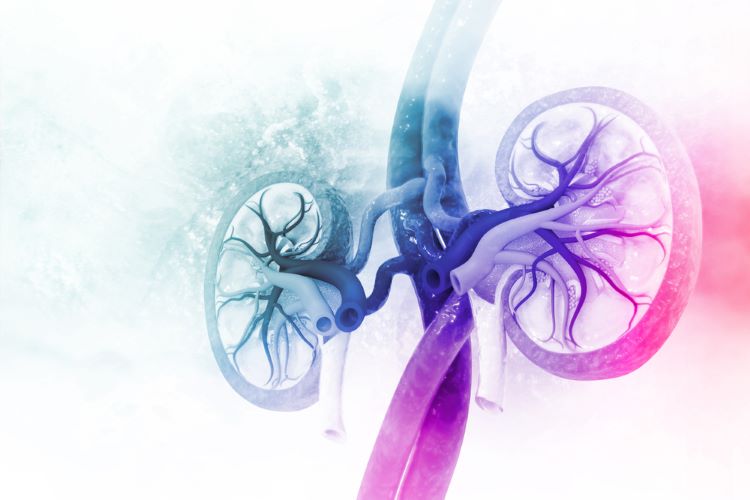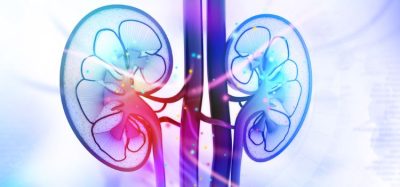Developing a new treatment paradigm for IgAN
Posted: 14 March 2024 | Catherine Eckford (European Pharmaceutical Review), Dr Marshall Fordyce (Vera Therapeutics) | No comments yet
On World Kidney Day 2024, Dr Marshall Fordyce, CEO of Vera Therapeutics explores the challenges of treating kidney disease and shares why the company’s lead candidate could become the first self-administered B-cell modulation therapy.


In recent months there have been important development in the kidney disease treatment space. For IgA nephropathy (IgAN), key highlights include the US Food And Drug Administration (FDA) approval of Calliditas Therapeutics’ TARPEYO and the Committee for Medicinal Products for Human Use (CHMP)’s recommendation of a conditional marketing authorisation for Filspari (sparsentan).
Additionally, there have been notable clinical developments for the treatment of kidney disorders. For example, in January, Phase III trial data showed that the immunotherapy drug pembrolizumab post-surgery was capable of slowing the recurrence of kidney cancer.
This month, new data from Novo Nordisk has revealed that semaglutide could become the first GLP-1 treatment option for patients with type 2 diabetes and chronic kidney disease (CKD).
To mark World Kidney Day 2024, Dr Marshall Fordyce, CEO of Vera Therapeutics, spoke with EPR about the challenges of treating kidney diseases, specifically IgAN, a condition caused by dysfunctional B cells. He also explained why the biologic atacicept has potential to be the first-to-market self-administered B-cell modulation therapy.
What are the greatest challenges in treating kidney disease?
In recent decades, there have been several foundational advances in the management of chronic kidney diseases. For example, agents that act on components of the renin-angiotensin-aldosterone system including angiotensin converting enzyme inhibitors and angiotensin receptor blockers have proven benefits in reducing proteinuria and slowing rate of loss of kidney function as measured by glomerular filtration rate (GFR).
More recently, data has shown that use of SGLT2 inhibitors in both diabetic and non-diabetic kidney disease is beneficial”
More recently, data has shown that use of SGLT2 inhibitors in both diabetic and non-diabetic kidney disease is beneficial using the same measures. Importantly, when we look broadly across progressive kidney diseases, we do not see the development of disease specific mechanistic interventions, and as a result it is unsurprising and unfortunate that the best we have been able to do is slow the rate of kidney decline, but decline continues.
In contrast, it would be ideal to convert a patient using disease modifying therapy such that their kidney profile evolved to one of background general kidney health. IgA nephropathy represents a specific kidney disease in which the underlying disease mechanism is clear. This clarity has enabled the rational design of a disease modifying therapy. And recent clinical trials have revealed evidence of true disease modification with stability of kidney function as measured by GFR.
Instead of treating kidney diseases with interventions that are not disease modifying, there is an opportunity to apply insights from disease-specific pathophysiology to the development of targeted therapies”
Instead of treating kidney diseases with interventions that are not disease modifying, there is an opportunity to apply insights from disease-specific pathophysiology to the development of targeted therapies. At Vera, we are aiming to address the unmet need in IgA nephropathy using a rationally designed therapy that addresses the fundamental disease mechanism, and in so doing demonstrates that progressive loss of kidney function can be ameliorated.
Why is the kidney disease IgA nephropathy difficult to treat?
IgAN is a serious and progressive autoimmune disease of the kidney that is driven by B cell production of galactose-deficient IgA1 (Gd-IgA1), which is recognised as an autoantigen by anti-Gd-IgA1 autoantibodies. This leads to the formation of immune complexes that deposit in the glomerulus and result in haematuria, proteinuria, and decline in kidney function.
IgAN is the most common primary glomerulonephritis worldwide. Up to fifty percent of IgAN patients progress to end-stage renal disease, requiring dialysis or transplant.
A large proportion of IgAN patients do not sufficiently respond to standard nonspecific chronic kidney disease treatment. Individuals who receive corticosteroids may experience limited efficacy, alongside significant side effects. Recently approved therapies for IgAN do not target the source of the autoantigens and autoantibodies and have been shown to slow but not halt the decline in kidney function.
What is atacicept and why could it be the first self-administered B-cell modulation therapy?
Atacicept is a fully humanised fusion protein composed of the Fc region of human IgG1 and the binding portion of TACI, a native receptor of the cytokines B-cell activating factor (BAFF) and A proliferation-inducing ligand (APRIL).
Both BAFF and APRIL play key roles in stimulating B cells and plasma cells, which are the source of the autoantigen (galactose-deficient IgA1 or Gd-IgA1) and autoantibody (anti-Gd-IgA1) in IgAN.
Dual inhibition of BAFF and APRIL reduces the production of both Gd-IgA1 and anti-Gd-IgA1, and subsequently reduces the deposition of immune complexes in the glomerulus that lead to kidney damage. The mechanism of action of atacicept targets the origin of IgAN pathology, acting upstream of the disease-causing events.
Among the B-cell modulators in development for IgAN treatment, atacicept is the only candidate that is self-administered at home, via 1ml once-weekly subcutaneous injection. This means it is an accessible and convenient option for patients. Therefore, atacicept is a promising candidate for becoming a cornerstone of the IgAN treatment paradigm.
Can you share some of the key highlights from the positive 72-week data from the IgAN Phase IIb ORIGIN trial?
The demonstration of stable [estimated glomerular filtration rate (eGFR)] well beyond a year of therapy is unprecedented among IgAN candidates in development and represents an important potential advance for [these patients with chronic kidney disease]”
The 72-week results1 from the atacicept trial showed the four outcomes consistent with an ideal disease-modifying IgAN treatment profile. Participants had consistent and sustained reductions in Gd-IgA1, haematuria, and urine protein to creatinine ratio (UPCR), with stable estimated glomerular filtration rate (eGFR) over the duration of treatment. The demonstration of stable eGFR well beyond a year of therapy is unprecedented among IgAN candidates in development and represents an important potential advance for patients.
Furthermore, participants who switched from placebo to atacicept in the open-label extension had similar results at 72 weeks as those initially randomised to atacicept in the first 36 weeks. The safety profile in the open-label extension was consistent with the randomised period and with the overall population of patients with IgAN. These results confirm the statistically significant Gd-IgA1 reduction, UPCR reduction, and eGFR stabilisation seen in the 36-week randomized, double-blind, placebo-controlled period, which met its primary and secondary endpoints.2
As such, the future IgAN treatment paradigm may include atacicept as a foundational therapy for both prevalent and incident patients. With a specific disease-modifying therapy such as atacicept, the rationale for steroids and other treatments that act later in the pathophysiology may not exist.
Topline data from Vera’s ORIGIN Phase III trial of atacicept is expected in the first half of 2025.3
About the interviewee


References
- Vera Therapeutics Presents Positive 72-Week Data Showing eGFR Stabilization in the Phase 2b ORIGIN Clinical Trial OLE in IgA Nephropathy. [Internet] Vera Therapeutics. 2024. [cited 2024Mar]. Available from: https://www.globenewswire.com/en/news-release/2024/01/25/2816523/0/en/Vera-Therapeutics-Presents-Positive-72-Week-Data-Showing-eGFR-Stabilization-in-the-Phase-2b-ORIGIN-Clinical-Trial-OLE-in-IgA-Nephropathy.html
- Vera Therapeutics Announces Positive Week 36 Efficacy and Safety Results of Phase 2b ORIGIN Clinical Trial of Atacicept in IgAN in Late-Breaking Presentation at 60th European Renal Association (ERA) Congress. [Internet] Vera Therapeutics. 2023. [cited 2024Mar]. Available from: https://www.globenewswire.com/en/news-release/2023/06/17/2689979/0/en/Vera-Therapeutics-Announces-Positive-Week-36-Efficacy-and-Safety-Results-of-Phase-2b-ORIGIN-Clinical-Trial-of-Atacicept-in-IgAN-in-Late-Breaking-Presentation-at-60th-European-Renal.html
- Vera Therapeutics Provides Business Update and Reports Second Quarter Financial Results. Vera Therapeutics. [Internet] Vera Therapeutics. 2023. [cited 2024Mar]. Available from: https://ir.veratx.com/news-releases/news-release-details/vera-therapeutics-provides-business-update-and-reports-second-0
Related topics
Biologics, Biopharmaceuticals, Clinical Development, Clinical Trials, Data Analysis, Drug Development, Drug Safety, Industry Insight, Research & Development (R&D), Therapeutics
Related organisations
Related drugs
Related people
Related diseases & conditions
chronic kidney disease (CKD), IgA nephropathy, Kidney disease









